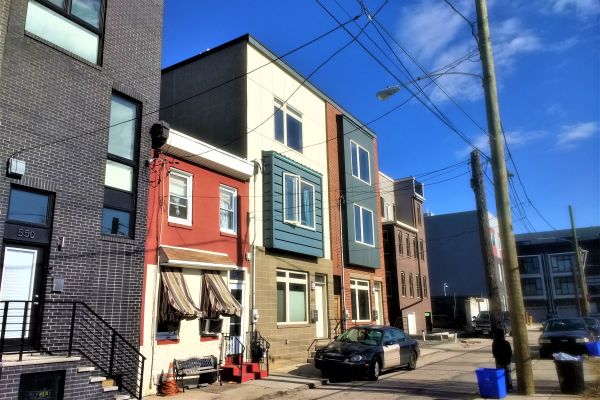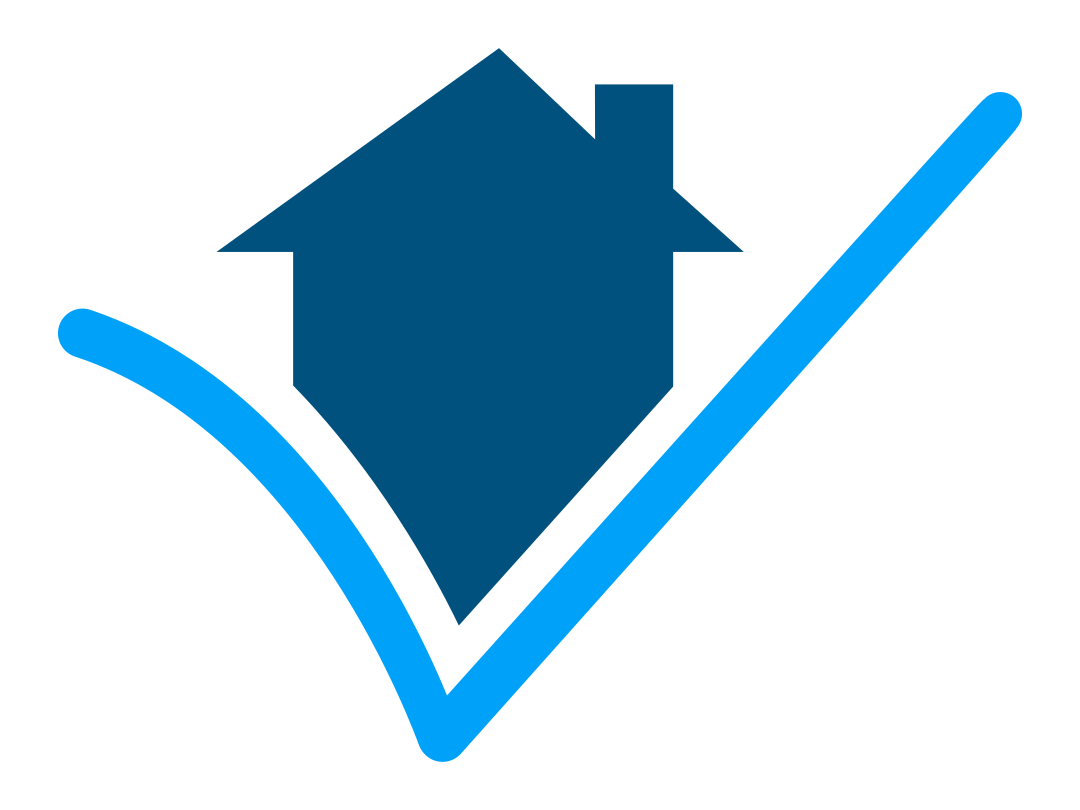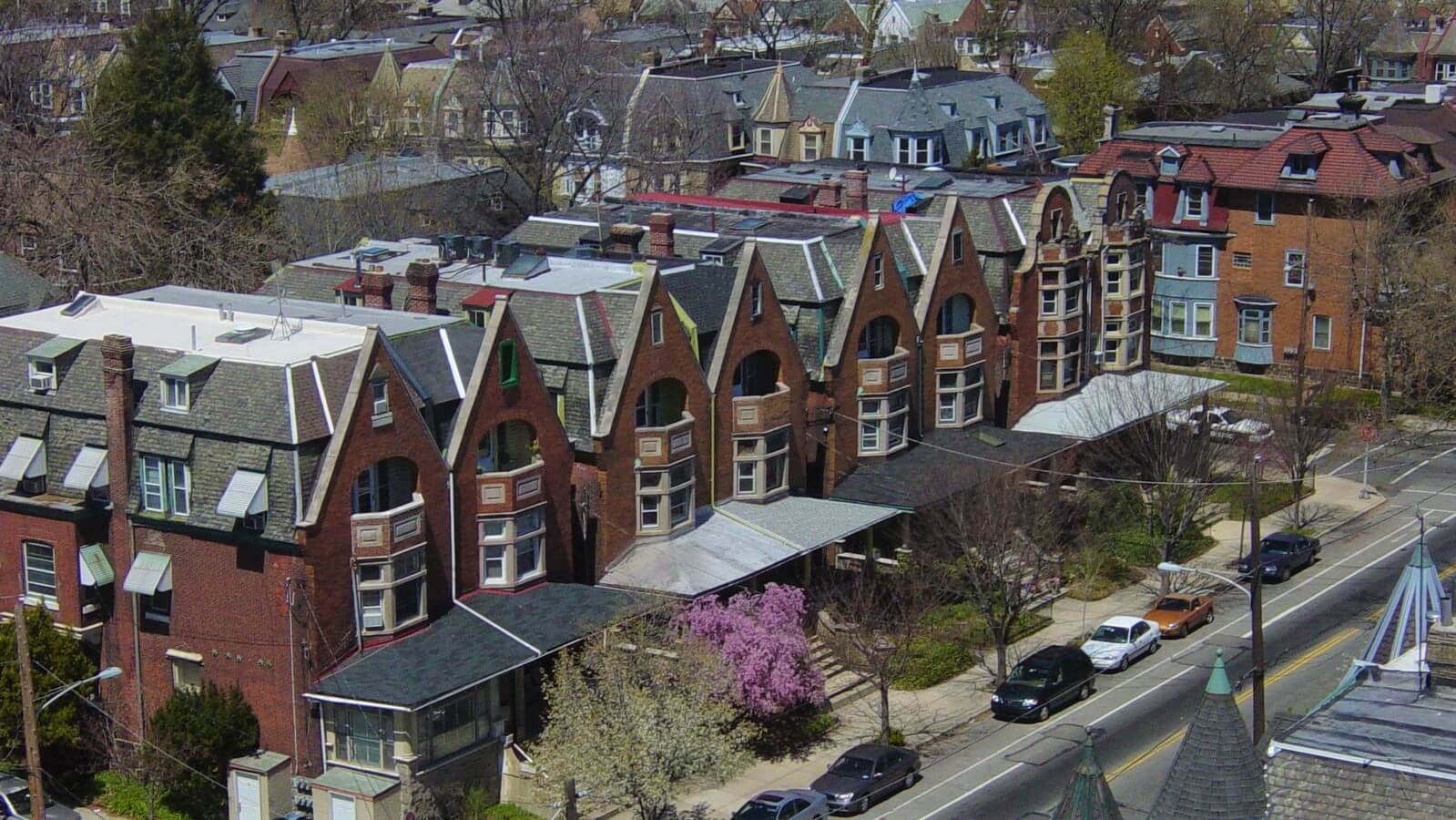Welcome to Permit Philly’s RSA Zoning Guide!
If you’d like to see the other parts of this series, click here.
Hello again! After last week’s discussion of commercial zoning in Philly, it’s time for some lighter reading in our Philadelphia zoning guide: residential zoning! Specifically: RSA zoning districts!
I can feel your excitement.
But this stuff is important, because most of Philly is zoned residential. Most of the zoning or permitting cases I’ve worked on involve a homeowner asking, “Can I do with my house?”
You are more than welcome to contact Permit Philly to ask that or any other question. But in the meantime, here are some answers to your essential concerns about residential zoning – specifically, Philly’s RSA zoning classification.
Philadelphia’s RSA Zoning (Residential Single-family Attached)
Single-family attached means what it sounds like: homes in the city of Philadelphia that are for one family, and are attached to each other or to another building. So, you know: Philly homes:

In a complete reversal of Philly’s zoning classifications for commercial buildings, “5” is the smallest type of building and “1” is the largest. So an RSA-1 building will be larger than an RSA-5 building.
RSA Zoning: How Big Can You Build It?
There’s an RSA zoning guide for builders
Check out the City’s dimensional table right here. This chart will show you exactly how large you can make your RSA building. There are some basic rules to know that apply across the board, though. All RSA classifications share some traits:
All RSA buildings may only be 38 feet tall
If you want to build taller than that, you’ll need a variance.
All RSA buildings need a backyard
Even small RSA-5 buildings require a rear yard of at least 9 feet.
All RSA buildings – unless they’re actually physically attached to each other – need a side yard, too
The yard sizes vary widely, and there are different rules for corner lots than for lots that house attached structures. But the range basically runs from 5 feet on each side for RSA-5 houses to 25 total feet for RSA-1 homes.
RSA-5 buildings are the weird ones
Because this designation is for rowhomes, there are more variations in the RSA-5 category than in any of the others. The most notable is that an RSA-5 building must be built up to the line of a row of homes: you can’t, for example, build 15 feet back from the sidewalk for a parking space, unless you get a variance – unless all the other homes in that row are also built 15 feet back from the sidewalk.
It’s important to note that larger RSA zoning districts, not only the building itself but the space around the building must be larger. For RSA-5 buildings – the quintessential Philadelphia rowhome – you may leave only 20% of the lot open if the lot is at the end of a string of houses, on the corner. Otherwise, you have to leave 25% of the lot open. The lot itself can be as small as 1,440 square feet, too. An RSA-1 building, on the other hand, can take up no more than 30% of the entire lot; and the minimum lot size is 5,000 square feet. Basically, it’s the difference between a rowhouse in South Philly and a roomy attached home in Conshohocken.
The required open lot area grows unevenly: 20 or 25% for RSA-5, 50% for RSA-3 and RSA-4, 60% for RSA-2, and 70% (!) for RSA-1.
The Zoning Code is trying very hard to keep the city of the same flavor: if your block was all rowhomes in 2012 – the year of the last Zoning Code rewrite – the Zoning Code tries to preserve that sort of construction in the neighborhood. If you live in a large house that, for some reason, is split into two housing units, way up the hill in Manayunk, Philly’s zoning rules will also try to preserve that type of building in the area.
RSA Zoning: What Can You Use it For?
A home! For one family! A building zoned RSA is zoned that way for you to live there. Almost any business use requires a variance from the Zoning Board of Adjustment. Using the building as a duplex or triplex requires a variance – and it’s not a slam dunk, either: while the ZBA famously has granted about 90% of variance requests in the past, they’re cracking down slightly these days, and they’re especially cracking down on triplex uses of single-family homes in crowded neighborhoods (for example: South Philly).
Three unrelated people can live in an RSA home, but you can’t create three condo units in an RSA building. And if you want to challenge idea of what really makes a family; well, some people have already tried and failed.
Now, this doesn’t mean that all variances are doomed – far from it! – just that you have to actually get one to use an RSA building as anything other than a house. There are a million (ed. note: this may be an exaggeration) coffee shops and small businesses and even bars in RSA-zoned buildings in Philadelphia. But they all had to ask – and get! – permission before operating. And if you need help with that process, you should check with Permit Philly first.
RSA Zoning Exceptions
There are a lot of options for special exceptions in Philly buildings zoned RSA. As we’ve covered, there’s a difference between a special exception and a variance: the special exception is easier to get your hands on. You still have to go through the entire zoning process, but as long as the neighbors don’t hate your guts and you follow the rules when operating your enterprise, you’re very likely to get your permit. You can get an SE for group living in RSA-zoned buildings, and for most civic organizations: Religious assemblies, clubs – like the Elks; not like The Dolphin – and hospitals can all get special exceptions; provided they’re separated from the surrounding buildings by a side yard.
You can also get straight-up, no-strings-attached approval for a family daycare on an RSA lot, or for a community garden. Check out the full chart of allowed and disallowed uses to be sure.
The Philadelphia Zoning Guide Will Return!
And that’s it for now! Thanks for reading about RSA zoning! And feel free to shoot us a message if you have any more questions.

